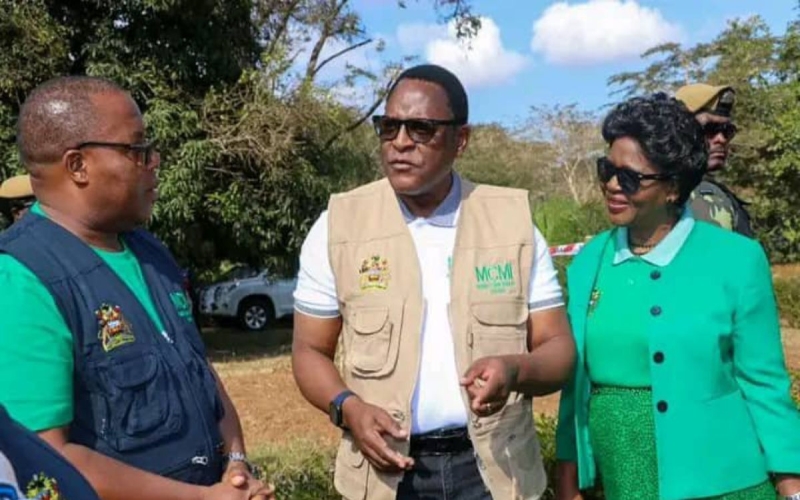As the world grapples with climate change, developing nations like Malawi seek innovative solutions to balance economic growth with environmental stewardship. One promising avenue is the regulation and participation in carbon trading markets. Malawi hopes to attract international investment by embracing carbon trading, fostering sustainable development, and addressing transparency concerns that have marred global carbon markets.
The Concept of Carbon Trading
Carbon trading is a market-based approach to controlling pollution by providing economic incentives for reducing pollutants. Countries or entities that emit less than their quota of greenhouse gases can sell their excess allowances to others who exceed their limits. This system aims to cap overall emissions while allowing for flexibility in achieving reductions.
For Malawi, a country heavily dependent on agriculture and natural resources, carbon trading presents an opportunity to monetize efforts to preserve forests, manage land sustainably, and reduce emissions. By participating in global carbon markets, Malawi can attract funding for green projects and contribute to global climate goals.
Malawi’s Carbon Market Strategy
The Malawian government is taking proactive steps to establish a robust framework for carbon trading. This includes drafting regulations that ensure transparency and accountability in carbon transactions. The regulations aim to prevent fraudulent activities that have plagued carbon markets elsewhere and to ensure that the benefits of carbon trading reach local communities.
One key initiative is the establishment of a national carbon registry. This registry will track carbon credits generated within the country, providing a transparent and verifiable record of emissions reductions. By leveraging technology and international best practices, Malawi aims to build a credible carbon market that can attract foreign investment and partnerships.
Benefits for Local Communities
Carbon trading can provide significant benefits for local communities in Malawi. Projects that generate carbon credits often involve reforestation, sustainable agriculture, and renewable energy development. These projects reduce emissions, create jobs, improve livelihoods, and enhance resilience to climate change.
For instance, reforestation projects can provide employment opportunities in tree planting and maintenance while restoring ecosystems and enhancing biodiversity. Sustainable agriculture practices can improve soil health, increase crop yields, and reduce reliance on chemical inputs. Renewable energy projects can provide clean and reliable power to rural areas, reducing dependence on fossil fuels and improving quality of life.
Addressing Transparency Concerns
Transparency is a critical issue in global carbon markets. Fraud, double-counting of credits, and lack of accountability have undermined the credibility of these markets. Malawi’s approach includes stringent monitoring, reporting, and verification (MRV) processes to ensure that carbon credits are genuine and accurately reflect emissions reductions.
The government collaborates with international organizations and experts to design MRV systems that meet global standards. By adopting rigorous and transparent practices, Malawi aims to build trust with investors and stakeholders, ensuring that the benefits of carbon trading are real and substantial.
Global Context and Challenges
Malawi’s move towards regulated carbon trading comes amid an increasing global focus on climate change mitigation. The Paris Agreement and subsequent international climate accords have emphasized the need for robust and transparent carbon markets to achieve global emissions reductions.
However, challenges remain. The global carbon market is still evolving, with varying standards and practices across different regions. Ensuring Malawi’s carbon credits are recognized and valued in international markets will require continuous engagement and adaptation to changing global dynamics.
Additionally, there are concerns about the equitable distribution of benefits from carbon trading. It is essential to ensure that local communities, often the most vulnerable to climate change impacts, receive a fair share of the economic benefits. Policies and mechanisms must be put in place to protect the rights and interests of these communities.
Conclusion
Malawi’s initiative to regulate carbon trading represents a forward-thinking approach to sustainable development. By establishing a transparent and credible carbon market, Malawi can attract international investment, promote environmental conservation, and enhance the well-being of its people. As the global community intensifies efforts to combat climate change, Malawi’s experience can provide valuable insights into the role of carbon markets in fostering sustainable and inclusive growth.
The success of this initiative will depend on continued commitment to transparency, community engagement, and alignment with international standards. If these elements are effectively managed, carbon trading could become a vital economic lifeline for Malawi, driving progress towards a greener and more resilient future.

